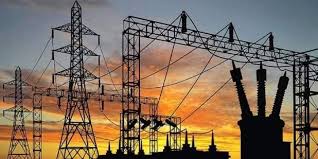In a historic shift that could reshape Nigeria’s electricity governance, the Nigerian Electricity Regulatory Commission (NERC) has confirmed that seven states—Enugu, Ondo, Ekiti, Imo, Oyo, Edo, and Kogi—have formally assumed control of their electricity markets under the provisions of the Electricity Act, 2023. This ground breaking legislation, signed into law by President Bola Tinubu last year, decentralises the electricity sector, granting states the power to generate, transmit, distribute, and regulate electricity within their borders. For the first time since Nigeria’s independence, state governments now have the legal authority to directly manage the critical power infrastructure within their jurisdictions.
NERC, which had until now retained sole regulatory oversight over the nation’s electricity industry, has already issued 11 transfer orders to states that met the baseline criteria for operational takeover. Each transfer order initiates a six-month transition period during which states must establish regulatory institutions, define tariffs, and ensure full legal and technical preparedness. Enugu State has already made considerable progress by establishing its own electricity regulatory commission and licensing Main power Electricity Distribution Limited—a successor entity derived from the legacy distribution company operating in the region—to function under its own state regulatory laws.
Lagos, Ogun, Niger, Plateau, and Anambra states are currently in the process of finalising their legal and technical frameworks, with transitions expected to conclude between June and September 2025. Anambra State, for instance, is on the verge of completing its process following the passage of its own electricity law. These developments signal a broader wave of decentralisation in line with Nigeria’s move toward fiscal federalism and market liberalisation.
However, while the policy shift has generated optimism among reform advocates, it has also sparked concerns about the ability of several states to manage the complex responsibilities that come with regulating a highly technical and sensitive industry. A senior official within NERC, speaking anonymously, highlighted significant risks facing the reform effort. “Some states have the political will, but they lack the institutional maturity and trained manpower to enforce regulations, manage electricity theft, set tariffs, and administer subsidy frameworks effectively,” the official warned.
Experts like Adetayo Adegbemle, founder of PowerUp Nigeria, and Kunle Olubiyo, President of the Nigeria Consumer Protection Network, agree that decentralisation could unlock private investment and encourage competition—but only if properly managed. “This isn’t just about passing a law or creating a commission. It requires a full ecosystem: technical experts, legal frameworks, metering infrastructure, consumer redress mechanisms, and investor assurances,” Adegbemle said. He warned that without clarity on federal and state roles, regulatory confusion could derail progress and destabilise investor confidence.
While Ekiti and Ondo have been praised for proactive engagement, including regulatory domestication and stakeholder dialogue, other states appear to have stalled after receiving approval. Professor Mobolaji Aluko, Ekiti’s Commissioner for Infrastructure and Public Utilities, disclosed that the state was working closely with NERC to domesticate existing federal regulations to ensure alignment and consistency. “We are approaching this with seriousness. The state has established an interim regulatory framework and is also reviewing tariff structures with the Disco,” he said. Ondo State, which passed its electricity law as early as 2020, has also been working to operationalise its state electricity market through dialogues with utility firms and consumer representatives.
Nonetheless, significant challenges remain. Chief among them is the issue of consumer protection and equitable access. Stakeholders argue that without a robust compliance mechanism, decentralisation could widen the gap between power-rich and power-poor states, with better-governed states attracting investment and underserved areas slipping further behind. Consumer advocacy leaders stress that issues such as metering, load shedding transparency, and billing disputes must be properly regulated at the state level to avoid service degradation and loss of public trust.
Professor Dayo Ayoade, a leading expert in energy law from the University of Lagos, echoed these warnings, noting that the transition’s success will depend heavily on continuous federal-state collaboration. “States cannot operate in silos. There must be synergy with the Federal Government, particularly with regard to national grid stability, cross-border electricity trading, and investor protection. If states start enacting conflicting or politically-motivated rules, it could lead to regulatory balkanisation and deter capital inflows,” he cautioned.
Beyond regulatory concerns, the Electricity Act’s implementation poses a real test of Nigeria’s commitment to decentralisation. If successful, this reform could serve as a template for broader fiscal and governance reforms, giving states greater autonomy over key economic sectors. But if mismanaged, it could entrench disparities and deepen inefficiencies in Nigeria’s already fragile power supply chain.
As the six-month transition period unfolds, all eyes are on how well states navigate this new terrain—balancing ambition with capacity, autonomy with accountability, and reform with responsibility. The stakes are high, and the outcomes could define the next chapter in Nigeria’s long and troubled energy story.



